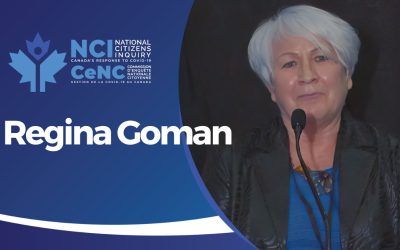The joke about over-urbanized kids who think milk comes from the grocery aisle but not cows should be extended to some in the municipal political class.
After Toronto, Montreal and Vancouver voters sent only Liberals, Bloquistes and New Democrats to Parliament last month, the political plea-bargaining started in earnest. Local politicians from Tory-free cities quickly reminded everyone else how critical they were to Canada.
“Investment in our cities is critical,” said Toronto’s Mayor David Miller, one day after the election, “Any prime minister will soon come to realize that.” The hassling of Prime Minister Stephen Harper will likely continue when mayors meet with the prime minister in March.
Miller meant investment courtesy of taxpayers and preferably transferred from federal coffers. The rhetoric from Miller and others reflects the belief that wealth is created primarily in downtowns and primarily by bureaucrats and politicians with grand plans.
But before Ottawa cuts any more cheques, it’s worth recalling that much wealth is created outside the political-bureaucratic axis familiar to Miller and other mayors.
True, city-dwellers have more years of post-secondary education. That’s one reason why the average urban family earns more than one in a rural hamlet. Also true, cities can be natural wealth-creators when new technologies and practices spring up from entrepreneurs, the creative class, and research and development.
There are also the new condominium towers that sprout like springtime cherry blossoms in Victoria. Thus, foresters and others in rural Canada benefit from the big-city real-estate boom. Prosperity and wealth creation is not a one-way street.
But some caution should be applied to the cities-create-the-wealth claim. A chunk of urban B.C.’s prosperity exists in part because of a resource boom in the Interior and up north. Albertans’ good fortune — $400 rebate cheques and downtown Calgary’s burgeoning balance sheets — results from wealth extracted in the northern oil sands and in the oil and natural-gas wells that dot rural, not urban, Alberta.
As for Toronto, local politicians there can delude themselves that they are at ground zero of Canada’s wealth-creation machine and demand all sorts of federal money on the justification that will help it continue, but manufacturing plants and warehouses are located in smaller centres or suburbs. No one builds new General Motors or Toyota plants smack dab in the centre of Hogtown.
None of that means cities are necessarily leeches on wealth creation. It depends on the particular council. A perfect example is Vancouver, where much of the last city council fought (and many local activists still fight) to keep Wal-Mart out of the city. (Side irony: Big-box stores benefit the poor because they force the prices of basic goods down. When councils chase them out, they raise prices for those who can least afford it.)
That points to another way to analyze our cities and wealth creation. Beyond the fact that rural Canada makes much of the hay upon which some of the urban centres feed, it also makes sense to compare the core of the major cities with not only the hinterlands but also with the more entrepreneurial suburbs and industrial parks where many of the new blue- and white-collar jobs are created.
On this, politicians in Canada’s major cities shouldn’t mistakenly think they are invulnerable to competition and can snub friendly wealth-creation policies forever. Vancouver must deal with competition from Surrey and other suburbs for business, retail stores and the resulting tax revenues. That competition is positive for taxpayers and consumers; it’s not so good for civic empire builders.
Toronto, regrettably a monopolistic megacity now, doesn’t face daily inter-city competition on taxes and regulation as was obvious when North York existed as a separate entity. But that lack of local competitive pressure only means Toronto’s relative decline vis-a-vis other Canadian cities — already obvious with a $200-million budget gap — will continue rather than be arrested and only become obvious over a longer period of time.
Victoria faces competition, thankfully, from Sidney and Langford, to name a few. (Those who want one big megacity should be careful what they ask for: It’s a recipe for higher property taxes and no competition between cities on services and taxes.)
Before the new federal government gives more cash to urban city councils, Harper’s Conservatives might gently remind local politicians where some of the wealth they covet originates, and, then inquire — especially of Montreal, Vancouver and Toronto councillors — what recent measures they’ve enacted to unleash wealth creation in their midst.
Mark Milke is author of the forthcoming A Nation of Serfs?
mmilke@telus.net


